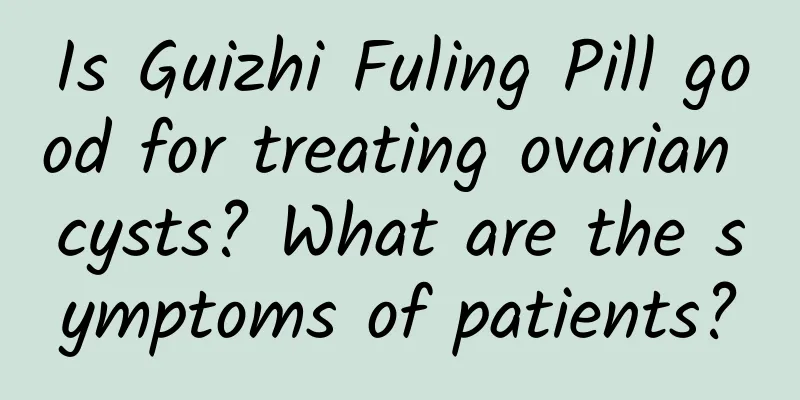What are the hazards of pelvic effusion? Daily protection for patients with pelvic effusion

|
Is female pelvic effusion serious? Gynecological experts point out that pelvic effusion caused by acute or chronic pelvic inflammatory disease and adnexitis is often accompanied by lower abdominal pain, lumbosacral pain, low back pain, lower abdominal distension and pain, low back pain, etc., or due to long-term standing, overwork, sexual intercourse, or premenstrual aggravation, severe cases affect work. Or lower abdominal pain, or increased leucorrhea, menstrual disorders, heavy menstrual blood, dysmenorrhea, and sexual discomfort; patients feel very uncomfortable and should be treated actively until the effusion is absorbed and dissipated. Once pelvic effusion is found, it should be treated in a regular hospital. Pelvic effusion needs to be actively treated, otherwise it is very harmful. What are the dangers of pelvic effusion? 1. It often causes lower abdominal pain, anal distension, back pain, excessive vaginal discharge, or sudden severe pain in the lower abdomen that gradually turns into distended pain, which worsens during activities, affecting normal study, life and work. 2. If pelvic effusion is not treated in time, it may affect the fimbria of the fallopian tube and cause inflammatory adhesions, leading to infertility. 3. If pelvic effusion is not treated in time, it may cause the inflammation of the surrounding tissues of the pelvis to spread and affect other organs in the pelvic area. Issues that patients with pelvic effusion need to pay attention to in daily life: 1. Women should eat light food in their daily life. They can eat more nutritious foods such as eggs, tofu, spinach, etc. At the same time, they should avoid eating raw, cold and irritating foods. 2. Avoid sexual intercourse during menstruation to avoid infection. 3. Avoid unnecessary gynecological examinations. Try to avoid unnecessary gynecological examinations to avoid expanding the infection and causing the inflammation to spread. 4. Pay attention to the cleanliness and hygiene of the menstrual pad, such as using disinfected toilet paper. 5. Pay attention to personal hygiene, strengthen personal hygiene during menstruation, after childbirth, and after miscarriage, avoid colds, change underwear and sanitary napkins frequently, and avoid overwork. |
<<: What is the cause of moderate cervical erosion?
>>: Five symptoms of malignant uterine fibroids
Recommend
Detox and lose weight in spring by eating 100-calorie, high-fiber sweet potato dishes
The ancients believed that among the four seasons...
Which is more harmful, induced abortion or artificial abortion?
Which is more harmful, induced abortion or artifi...
Want to be even thinner? Too much weight can easily lead to osteoporosis
Girls who only want to lose weight should be care...
What causes irregular menstruation? How should women regulate irregular menstruation?
Menstrual disorders are a common disease among wo...
What are the dietary principles for patients with adnexitis?
What are the dietary principles for patients with...
Young women who have multiple abortions should be careful about cervicitis
After a gynecological examination, the doctor dia...
Is the stinging reaction of endometrial tuberculosis serious?
Is the stinging reaction of endometrial tuberculo...
How to take care of women after abortion? How to take care of women after abortion? It is safe and effective
Abortion surgery will more or less cause varying ...
What are the main symptoms of cervical hypertrophy?
Experts point out that cervical hypertrophy is a ...
Does cervical erosion affect fertility during pregnancy? How can pregnant women balance fetal care and treatment?
Pregnancy is the most important thing for a famil...
Is it healthy to eat salads and dried fruits? 4 unexpectedly high-calorie foods
Many people don’t know what they can and cannot e...
Traditional Chinese Medicine Treatment of Bartholinitis
The Bartholin's glands are located at the bac...
What are the common precautions after abortion?
With the development of society, people have beco...
How to make your period come faster
If you want to speed up your period, there are so...
Which hospital is better for vaginitis treatment?
Which hospital is better for vaginitis treatment?...









